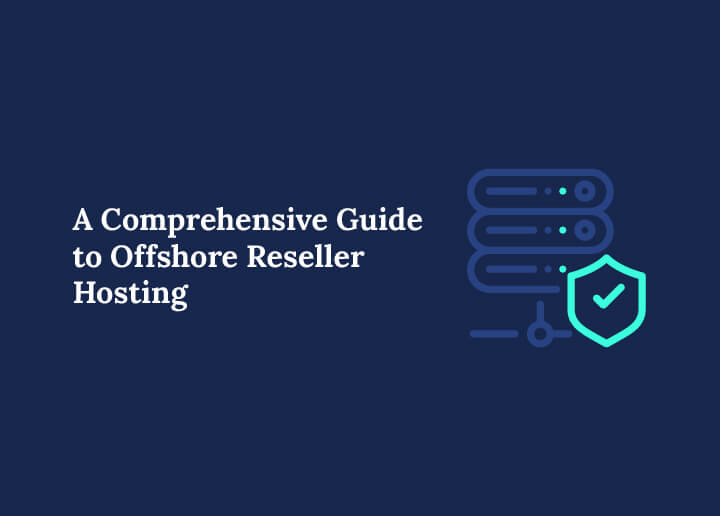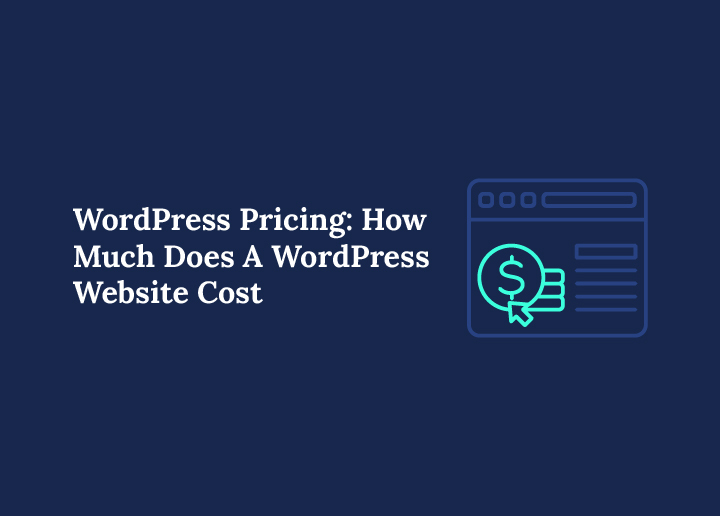Offshore reseller hosting is becoming increasingly popular among digital entrepreneurs and businesses seeking privacy, flexibility, and cost efficiency. It allows you to rent server space in a foreign country and resell it to clients under your own brand.
Whether you’re launching a web hosting business or aiming to safeguard sensitive data, offshore hosting offers unique advantages. However, like any business model, offshore reseller hosting also has some drawbacks.
In this article, we’ll explore offshore reseller hosting and the different types of hosting services available, weighing the benefits and drawbacks to help you make an informed decision.
What is Offshore Reseller Hosting?
Offshore reseller hosting refers to hosting websites on servers located outside your own country and reselling those hosting services to clients. The term “offshore” often implies countries with lenient data laws, strong privacy protections, or lower operational costs.

This type of hosting is ideal for businesses that:
- Require data anonymity
- Operate in regulated industries like online gambling or adult content
- Want to reduce hosting costs
- Seek high reliability and uptime
Now, let’s look at the benefits and drawbacks of offshore reseller hosting service.
Experience Exponential Growth with Strategic Hosting Partnerships
Whether you’re a digital agency, SaaS startup, or content creator, partnering with the right web host can elevate your business.
Benefits of Offshore Reseller Hosting
Let’s begin by understanding the benefits of offshore reseller hosting:
Enhanced Privacy and Anonymity
One of the biggest benefits of offshore hosting is the enhanced level of privacy and anonymity it offers. Unlike traditional hosting providers based in countries with invasive surveillance policies, offshore hosts located in countries like Switzerland, Iceland, and the Netherlands operate under strict data protection laws.
As a result, businesses benefit from:
- Minimal government surveillance
- Zero data logging
- Resistance to takedown requests, such as those related to DMCA compliance.
Moreover, this hosting setup is ideal for companies dealing with sensitive customer information or operating in regulated sectors. Ultimately, it empowers businesses to maintain confidentiality and protect their digital assets.
Read: Implement Cookie Consent in WordPress
Cost-Effectiveness
Offshore hosting can be more affordable than traditional hosting. This is especially true in countries with favorable tax laws and low operational costs. You get:
- Competitive pricing plans
- Lower monthly fees
- Discounts for annual or multi-year commitments
For startups or small businesses, offshore hosting offers a budget-friendly way to get reliable infrastructure.
Learn about: VPS Reseller Hosting
High Uptime and Reliability
Many offshore hosting companies use data centers in regions less prone to natural disasters. These facilities are equipped with:
- Advanced cooling systems
- Power backups
- Network redundancy
This ensures consistent uptime, which is critical for online businesses.
Flexible Hosting Options
Offshore hosting providers typically offer a wide range of hosting solutions to suit various business requirements. These options include:
- Shared Hosting, which is a cost-effective choice for small websites or startups with limited traffic.
- For businesses that need better performance and more control, VPS Hosting provides a virtualized environment with dedicated resources on a shared server.
- Dedicated Hosting, on the other hand, offers exclusive access to an entire server, delivering maximum control, security, and performance. This is ideal for high-traffic or resource-intensive sites.
- Cloud Hosting is a scalable solution designed for businesses with fluctuating demands, ensuring high uptime and flexibility.
This variety allows resellers to build tailored hosting packages for different clients, from beginners to enterprise-level organizations.
Freedom of Content
One of the standout advantages of offshore hosting is the freedom it provides regarding the type of content that can be hosted. In many countries, strict regulations or censorship laws limit what businesses can publish online.
However, offshore hosting, especially in jurisdictions with relaxed content laws, enables the hosting of material that may be restricted or banned elsewhere.
This makes it an ideal choice for industries such as:
- Online gambling
- Adult entertainment
- Cryptocurrency projects
- Political blogs or whistleblower platforms
By bypassing local restrictions, businesses can operate freely, reach global audiences, and avoid unnecessary legal complications tied to content limitations in their home countries.
Protection Against Censorship
If your business operates in a country with strict internet laws, offshore hosting provides a shield against censorship. It helps:
- Safeguard against arbitrary takedowns
- Supports freedom of speech
- Allows hosting of controversial or alternative viewpoints
This is important for journalists, activists, or any business seeking digital independence.
Explore: Best WordPress Hosting Reseller Plans
Robust Security Measures
Offshore hosting providers are typically equipped with advanced tools and protocols to defend against modern cybersecurity threats. Many offer essential features such as:
- DDoS protection to prevent malicious traffic from overwhelming your website.
- SSL certificates to encrypt data transferred between the server and users.
- Firewalls and malware scanning tools to detect and block suspicious activity before it causes harm.
Some providers also include end-to-end encryption, ensuring that sensitive data remains secure during transmission and storage.
These robust security measures not only protect your website from common cyberattacks but also build trust with customers by safeguarding their personal and financial information.
Scalability for Growing Businesses
Offshore hosting services offer excellent scalability, making them ideal for businesses with evolving needs. As your website traffic or resource demands increase, you can seamlessly upgrade your hosting plan without downtime or disruption.
You can easily add more bandwidth or storage, or migrate from shared hosting to VPS or dedicated servers for enhanced performance and control.
Moreover, many offshore providers offer cloud infrastructure, allowing for on-demand scalability that adjusts to traffic spikes in real time.
This level of flexibility is especially beneficial for digital agencies, software developers, and SaaS startups that need reliable hosting solutions capable of growing with their business.
Drawbacks of Offshore Reseller Hosting
Now, let’s check out the drawbacks of offshore reseller hosting in brief:
Potential for Abuse
The anonymity and lenient regulations offered by offshore hosting can, unfortunately, attract malicious actors. Common risks include:
- Hosting of pirated content, spam, or malware: These practices can lead to legal issues and jeopardize server integrity.
- Risk of shared IPs being blacklisted: If you’re on a shared server with abusive users, your site’s IP could be flagged.
- Negative impact on SEO and reputation: Search engines may penalize your site, reducing visibility and trust.
Choosing a reputable offshore host with strict abuse policies helps mitigate these risks.
Legal Uncertainty
While offshore hosting may offer legal leniency, it can also create legal complications such as:
- Jurisdictional issues in the case of disputes
- Difficulty in enforcing contracts or resolving conflicts
- Non-compliance with local business laws or regulations
It’s crucial to understand the legal environment in the host country before committing.
Discover: Best Reseller Hosting in Dubai
Customer Support Challenges
Some offshore hosts may not offer round-the-clock or English-speaking support. There could also be:
- Time zone differences
- Delayed ticket responses
- Limited support channels (e.g., email-only)
Poor support can result in downtime or frustration, especially during emergencies.
Also read: Best Reseller Hosting in Canada
Performance Variability
Offshore hosting can suffer from inconsistent performance depending on the host’s infrastructure and server location. Key concerns include:
- Latency issues: Servers located far from your target audience can cause delays in data delivery, leading to slower response times.
- Slower website load speeds: Affects both user experience and search engine rankings, potentially reducing traffic and conversions.
- Limited CDN integration: Makes it harder to serve content efficiently to a global audience.
To mitigate this, choose providers with global reach and high-performance infrastructure.
Check out: Best Web Hosting Providers for Small Businesses
Complex Setup and Management
Offshore reseller hosting often demands a higher level of technical knowledge, which can be challenging for beginners. Tasks such as:
- Managing WHM/cPanel or custom dashboards require understanding of server settings, account creation, and package management.
- Monitoring resource usage involves keeping track of bandwidth, disk space, and CPU limits to ensure optimal performance.
- Handling client-side support and billing means setting up ticket systems, managing invoices, and resolving client issues promptly.
For those without a technical background, these responsibilities can be overwhelming. Therefore, it’s essential to either acquire the necessary skills or partner with a provider that offers managed support services.
Limited Payment Options
One of the drawbacks of offshore hosting is the restriction in available payment methods, which can affect convenience and transparency. Common issues include:
- Cryptocurrency-only payments: While offering anonymity, they may not be suitable or accessible for all users.
- Lack of PayPal or credit card support: Limits flexibility for businesses that rely on traditional payment gateways.
- Unclear refund policies: Can create uncertainty around cancellations or disputes.
These limitations may complicate transactions and make financial tracking more difficult for resellers and clients alike.
Ultimate Guide: How to Resell WordPress Hosting
Trust and Transparency Issues
Offshore hosting providers may sometimes lack the transparency and accountability expected from mainstream hosting companies. Key concerns include:
- Hard to verify business legitimacy: Some offshore hosts may not disclose ownership details or company registration information.
- Incomplete documentation or vague terms: Terms of service, SLAs, and privacy policies may be unclear or loosely defined.
- Poor communication and lack of accountability: Limited customer support or evasive responses can make issue resolution difficult.
To minimize risk, always review third-party feedback and validate the provider’s credibility before committing.
SEO and Ranking Challenges
Hosting your website on servers located far from your target audience can lead to several SEO-related issues, including:
- Page load speeds: Increased latency can slow down your site, which negatively impacts user experience and search engine rankings.
- Geo-targeting: Search engines may struggle to associate your site with the correct geographic region.
- Local SEO rankings: A foreign server location may reduce visibility in local search results.
Using a CDN and geolocation tools can help offset these challenges effectively.
Comparison to Traditional Hosting
Here’s how offshore hosting stacks up against traditional hosting:
| Feature | Offshore Hosting | Traditional Hosting |
| Privacy | High | Moderate |
| Anonymity | Often supported | Limited |
| Cost | Lower in some cases | Generally higher |
| Support | May be limited | Usually strong |
| Content Freedom | Broad | Restricted |
| Legal Risks | Varies | Usually clear |
| Ease of Use | Requires more expertise | User-friendly |
| SEO Impact | Needs optimization | Often geo-optimized |
How to Choose the Right Offshore Host?
Choosing the right offshore web hosting provider is crucial to ensure your website runs smoothly, securely, and in compliance with your privacy needs. With so many options available, it’s important to evaluate several key factors before making a decision. Below is a breakdown of what to consider when selecting an offshore host.
- Server Location: Start by choosing a host with servers located in countries known for strong privacy and data protection laws, such as Switzerland or Iceland. This ensures your data is safe from intrusive surveillance and takedown requests.
- Reputation: Always research the provider’s background. Read independent reviews, customer testimonials, and industry feedback to assess the host’s reliability, performance, and customer satisfaction levels.
- Support Availability: Reliable customer support is essential, especially when managing offshore services. Look for providers offering 24/7 support with quick response times across multiple channels like chat, email, or phone.
- Security Features: Security should never be compromised. Choose a provider that offers DDoS protection, regular backups, SSL certificates, firewalls, and malware scanning. These tools help safeguard your site from cyber threats and data breaches.
- Scalability: Your hosting needs will likely grow over time. Opt for a provider that offers flexible plans, allowing you to easily upgrade bandwidth, storage, or server type as your business expands.
- Control Panel Access: Finally, ensure the hosting provider offers user-friendly control panels such as cPanel, DirectAdmin, or a custom dashboard. A well-designed interface simplifies website management and reduces technical headaches.
Taking time to assess these factors can lead to a more secure, scalable, and hassle-free offshore hosting experience.
To Sum Up
Offshore reseller hosting offers a compelling mix of privacy, flexibility, and cost savings, especially for businesses with unique hosting needs.
Whether you’re running an agency, serving international clients, or managing sensitive data, offshore hosting can provide advantages that traditional hosting often lacks.
However, it’s not without drawbacks. From legal uncertainties to potential performance issues, it’s important to do your research and choose your hosting provider carefully.
If privacy, cost-efficiency, and content freedom are your priorities and you’re comfortable managing the risks, then offshore web hosting could be the right solution for you.
FAQs About Offshore Hosting Services
Why do businesses choose offshore hosting services?
Businesses often opt for offshore hosting services for various reasons, including enhanced data privacy, identity protection, lower prices, and tax benefits available in a different country with favorable taxation policies.
Are offshore web hosts legal to use?
Yes, offshore web hosts are legal for most purposes. However, hosting controversial content may violate laws in your own country, so it’s important to understand the legal risks.
Can offshore hosting improve my website’s performance?
It depends on the server location and infrastructure. While many offshore hosts offer good performance, poor location choices can increase load time for website visitors far from the server.
Are offshore hosting services secure?
Reputable offshore hosting providers offer reliable backup, protection against potential data breaches, and enforce strict privacy laws, helping to safeguard your site and prevent identity theft.
What are the drawbacks of traditional web hosting providers?
Traditional web hosting providers may offer little anonymity and less online privacy, especially in regions with invasive surveillance laws. Offshore options can offer numerous benefits, especially for businesses handling sensitive data.



